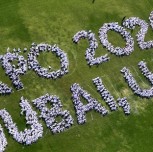Since Dubai entered its bid back in November and has recently been awarded the rights to host the international juggernaut event of World Expo in 2020, local economists and analysts expect a great change of prosperity and wealth to sweep the country.
According to Institute of International Finance (IIF), a Washington based organization of 450 global banks and financial institutions, hosting the World Expo event in 2020 is projected to add at least 1.5 percentage points per year to Dubai’s real gross domestic product (GDP) growth over 2014-2020, resulting in a yearly growth of 5.5 percent.
“The official figure shows World Expo 2020-related spending of Dh88 billion ($24 billion) over 2014-2020. However, a significant portion of the spending on infrastructure projects would still have taken place as part of Dubai 2020 vision. Most of the planned spending is expected to be financed by additional borrowing, leading to further increase in the already high debt,” said Deputy Director of Institute of International Finance, Garbis Iradian.
Analysts note that the major growth experienced by Dubai is steered by basic fundamentals rather than projection and other guess work. According to Dubai’s Department of Economic Development estimates, the GDP of the economy grew 4.9 percent in the first nine months of the year. For 2013 and 2014, the emirate’s GDP is expected to grow 4.7 percent and 4.5 percent respectively.
“Dubai’s GDP growth this year and the year ahead is largely driven my strong growth in trade and tourism. Lately we have noticed that manufacturing is also contributing significantly to the economic growth,” said chief economist of the Dubai Department of Economic Development, Mohammad Lahouel.
And despite there being a major rise in real estate prices in Dubai, analysts claim that these prices do not point to another real estate bubble in the future. House prices in the emirates have sky-rocketed to more than 20 percent in the previous year, triggers the IMF to warn in July of the risk of another possible bubble.
“Dubai has been doing extremely well on economic fundamentals during the last three years. But if there is going to be an irrational exuberance in the real estate sector and that leads to another round of construction frenzy, it will be a cause of serious worry,” said Citigroup’s chief economist for the Middle East, Farouk Soussa.
The IMF speculates that Dubai’s existing debts including the debt outstanding of government related entities (GREs) falls at 100 percent of its GDP.
“So far Dubai has effectively managed its debt obligations and we expect it to meet all its obligations on time. However, the US tapering could have an impact on the cost of refinancing as interest rates are likely to go up as and when it happens,” said IMF’s Director for the Middle East and North Africa (Mena), Masoud Ahmad.
The IIF’s estimations reveal that Dubai’s debt will see a rise from $142 billion (Dh 521 billion) in 2012 to $168.5 billion by 2020. The debt-to-GDP ratio, however, is projected to decrease from 106 percent of GDP in 2012 to 70 percent by 2020, on the basis that there is an annual real GDP growth of 5.5 percent, and GDP deflator (CPI inflation) of 2 percent. And although declining, a debt-to-GDP ratio of 70 percent by 2020 is still regarded to be quite high.





